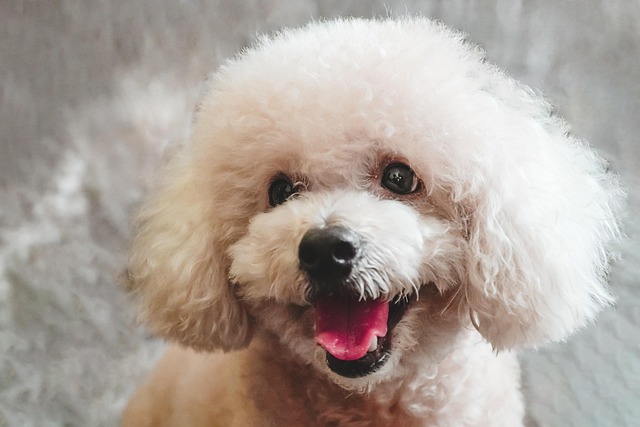
How can I tell if my dog's heatstroke is serious
Let’s be real: It’s a sticky August morning in Los Angeles, and you took your 2-year-old Golden Retriever, Max, for a walk a little later than usual
Nothing’s more confusing than a dog who still smells funky right after a fresh bath. You’ve lathered, rinsed, and maybe even used that fancy coconut-scented shampoo—but the odor lingers. Before you blame the soap, let’s explore why this happens and how to tackle it with patience and care for your furry friend.
First, consider how you’re bathing them. Dogs have sensitive skin pH levels, and human shampoos (or even some pet shampoos) can throw that balance off. Harsh products might leave a residue that traps odor instead of wash off it. Always use a gentle, vet-recommended dog shampoo, and rinse thoroughly—even a drop of soap left behind can lead to irritation and stink over time.
Another common culprit? Wet doggy odor isn’t just about dirt—it’s often trapped moisture. If your pup has thick fur, especially breeds like Goldens or Bulldogs, water can get stuck close to the skin. After bathing, dry them completely with a towel and a low-heat blow dryer (keep it far enough to avoid burns). Moisture left in the coat creates the perfect spot for bacteria or yeast to grow, leading to that stubborn “wet dog” smell even after they’re dry to the touch.
Don’t forget about the areas you might miss. Ears, paws, and under the tail are hotspots for odor. Ear infections, especially in floppy-eared breeds, can emit a strong, musty smell that baths won’t touch. Gently clean their ears weekly with a vet-approved solution (never q-tips!) and check for redness or discharge. Between their toes, dirt and debris can build up—after walks, wipe their paws with a damp cloth to prevent bacteria from settling in.
 Dental issues are another silent stinker. Bad breath from tartar buildup or gum disease can make your dog’s whole face smell, and no amount of bathing will fix that. Brush their teeth regularly with dog-specific toothpaste (never human paste—it’s toxic!) and schedule annual dental checkups. A fresh mouth goes a long way in keeping your pup’s overall odor in check.
Dental issues are another silent stinker. Bad breath from tartar buildup or gum disease can make your dog’s whole face smell, and no amount of bathing will fix that. Brush their teeth regularly with dog-specific toothpaste (never human paste—it’s toxic!) and schedule annual dental checkups. A fresh mouth goes a long way in keeping your pup’s overall odor in check.
Some dogs have naturally oily skin, which attracts dirt and traps smells faster. Breeds like Labs or Basset Hounds produce more oils, meaning they might need more frequent (but gentle) baths—though overwashing can make it worse. Aim for every 4-6 weeks unless your vet says otherwise, and use a moisturizing shampoo to keep their skin healthy without stripping oils entirely.
Environmental factors play a role too. If your dog spends time in grass, woods, or around other animals, they might pick up smells that cling to their fur even after a bath. Smoke, cooking oils, or even the fabric softener in your towels can leave residues that mix with their natural oils, creating a stubborn scent. Opt for unscented, hypoallergenic towels for drying and avoid strong perfumes around them.
Let’s not overlook health issues. Persistent, unusual odors—like a sweet, musky smell—could signal underlying problems like skin infections, hormonal imbalances, or even organ issues. If the smell is sudden, strong, or comes with itching, lethargy, or changes in appetite, it’s time to see the vet. Your dog’s nose knows, but so does their body—odor can be a clue to bigger health concerns.
So, what’s the fix? Start with the basics: proper shampoo, thorough rinsing, and complete drying. Then tackle the hidden spots—ears, teeth, paws—and address any oily skin with vet-approved products. If the smell persists, don’t just keep bathing harder; investigate gently. Remember, dogs aren’t meant to smell like a flower shop 24/7, but a fresh, clean scent that’s naturally them is totally achievable.
Be patient, and treat bath time as a bonding moment. Use positive reinforcement—praise, treats, a cozy towel wrap afterward—to make it a stress-free experience. Your dog’s smell is more than just a nuisance; it’s a window into their comfort and health. With a little detective work and tender care, you’ll both enjoy a fresher, happier pup—no endless baths required.

Let’s be real: It’s a sticky August morning in Los Angeles, and you took your 2-year-old Golden Retriever, Max, for a walk a little later than usual

You're enjoying a summer afternoon at the park when you notice your dog has stopped panting and appears disoriented - their gums are bright red

Let’s paint the picture: You’re in your Denver apartment, watching your 4-year-old Boston Terrier, Ruby, plop down mid-play session with her favorite toy

Many dog owners notice their pets nails seem shorter after regular walks,but how much does this daily activity actually help?The answer depends on where you walk—concrete sidewalks or asphalt streets gently file nails as a dog's paws hit the ground

Most dog owners notice their pup scooting across the carpet at some point, but few connect it to impacted anal glands. These small sacs near a dog’s rectum secrete a scent for marking territory

Most vets agree that regular dog teeth cleaning is key to avoiding painful dental issues later. For healthy adult dogs, a professional cleaning at the vet’s office every 12 to 18 months usually works well.